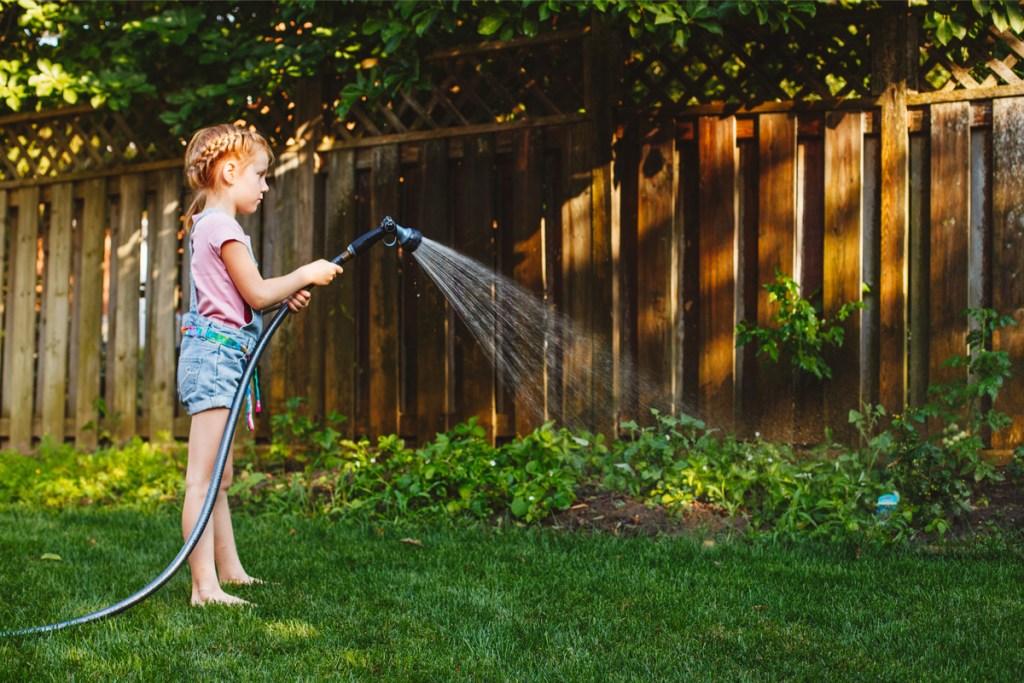Outdoor chores serve as an indispensable component of childhood development, enabling children to cultivate a variety of skills that are integral to building early responsibility. Engaging in such tasks not only fosters a sense of autonomy but also instills valuable life lessons that extend beyond the immediate environment. This discourse aims to elucidate the significance of outdoor chores for children, articulating various competencies they can acquire through these activities.
The significance of outdoor chores transcends mere utility; they can be orchestrated to nurture a spectrum of skills. By incorporating outdoor chores into a child’s routine, caregivers can effectively promote essential life skills that encourage accountability and foster independence.
Understanding the diverse types of chores available is crucial for both caregivers and children alike. Chores may range from simple tasks such as watering plants to more complex responsibilities like gardening or maintaining outdoor spaces. Each chore presents a unique opportunity for children to engage with their environment, learn about nature, and develop a holistic sense of duty.
Additionally, children harness a profound connection to the world around them through outdoor chores. They begin to recognize the interdependent relationships in nature and understand their role within this ecosystem, enhancing their environmental consciousness. This engagement often transitions into a commitment to conservation and responsible stewardship of the planet, values that are critical in today’s ecological landscape.
It is essential to consider the different dimensions of outdoor chores: physical, cognitive, and emotional. Each category offers children avenues to explore and develop unique skill sets that will serve them well into their adult lives.
Through physical outdoor chores, children can embark on the path of improving their motor skills and overall physical fitness. Engaging in activities such as raking leaves, weeding, or carrying garden supplies not only strengthens their muscles but also enhances coordination and balance. Research indicates that active participation in outdoor chores can lead to improved health outcomes and a reduction in sedentary behavior, helping combat the pervasive issue of childhood obesity (Bennett et al., 2020).
Cognitive development is significantly bolstered through the problem-solving aspects of outdoor chores. As children tackle challenges related to task completion, they hone their critical thinking capabilities. For instance, planting a garden involves understanding seasonal changes, soil types, and plant growth cycles. This kind of experiential learning engenders a deeper comprehension of ecological principles and promotes intellectual curiosity. Additionally, chores like setting up a compost bin require planning and foresight, thereby fostering organizational skills and strategic thinking (White & Stoecker, 2014).
The emotional benefits of outdoor chores should not be overlooked. Participating in meaningful tasks enhances a child’s sense of agency, contributing to their self-esteem and self-worth. When children complete a chore, they experience a sense of accomplishment that is vital for cultivating resilience in the face of challenges. These chores provide an opportunity for children to practice perseverance and learn how to cope with failure – skills that are invaluable in navigating life’s complexities. Moreover, engaging in outdoor chores as a family can strengthen interpersonal relationships and foster teamwork, teaching children the importance of collaboration and community engagement (Smith, 2019).
Fostering Responsibility Through Structured Chores
Establishing a structured chore routine can significantly contribute to a child’s understanding of responsibility. Caregivers play an essential role in facilitating this process by assigning age-appropriate chores that align with the child’s capabilities and interests. The involvement of children in the decision-making process regarding which chores to undertake can also increase their willingness to participate. Open communication about the rationale behind these chores can demystify their purpose and enhance motivation.
The initial introduction of outdoor chores should be accompanied by explicit guidance. For instance, teaching children how to use gardening tools safely and effectively will ensure they grasp the importance of proper technique and caution. Clear demonstrations can heighten their confidence as they embark on these tasks. As they develop proficiency, caregivers can gradually escalate the complexity and responsibility of the chores, reinforcing their growth and ability to manage more significant duties.
The incorporation of reward systems can also serve as a motivational tool. Acknowledging a child’s efforts with praise or small incentives can affirm their contributions and nurture a desire for continued engagement. However, it is imperative to strike a balance between extrinsic and intrinsic motivation. By instilling a sense of pride in their accomplishments, children can learn that responsibility is not merely about receiving rewards but about the satisfaction derived from fulfilling commitments (Deci & Ryan, 2000).
Outdoor Chores as a Tool for Developing Life Skills
Several specific outdoor chores can yield profound developmental benefits. Understanding their practical applications can help caregivers select the most beneficial tasks for their children. Such chores can cultivate skills across various domains.
Gardening arguably stands out as an exemplary task. Beyond the rudimentary act of planting seeds, this chore educates children about ecological principles, such as photosynthesis and biodiversity. Children learn patience as they observe plant life cycles, fostering an appreciation for growth and development, which mirrors their own journeys. Furthermore, tending to a garden cultivates responsibility; children become accountable for the plants’ health, learning to identify problems and implement solutions.
Lawn care, including mowing and raking, teaches children about maintenance and upkeep. Such tasks require planning, as children must consider the weather, tool preparation, and time management. This engenders a sense of responsibility as the child learns the consequences of neglecting their duties—unruly grass or piles of leaves can create an unsightly yard and a sense of dissatisfaction.
Cleaning outdoor spaces, such as patios or garages, encompasses tasks that reinforce cleanliness and organization—critical elements in a responsible lifestyle. This process teaches children the value of creating safe, functional environments while nurturing their ability to categorize and prioritize tasks. The skills acquired from these chores translate into lifelong habits that enhance overall quality of life.
In conclusion, the cultivation of responsibility through outdoor chores offers a myriad of benefits that span physical, cognitive, and emotional development. These tasks provide children with opportunities to engage meaningfully with their environment, fostering a sense of autonomy and personal accountability. By meticulously selecting age-appropriate chores, establishing structured routines, and emphasizing the significance of collaboration, caregivers can promote the growth of responsible individuals poised to contribute positively to society. The long-term advantages of instilling these values during childhood will resonate throughout their lifetimes, shaping the future of responsible citizenship and environmental stewardship.









Leave a Comment